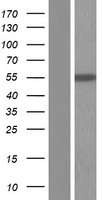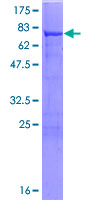order histories, retained contact details for faster checkout, review submissions, and special promotions.
Forgot password?
order histories, retained contact details for faster checkout, review submissions, and special promotions.
Location
Corporate Headquarters
Vector Laboratories, Inc.
6737 Mowry Ave
Newark, CA 94560
United States
Telephone Numbers
Customer Service: (800) 227-6666 / (650) 697-3600
Contact Us
Additional Contact Details
order histories, retained contact details for faster checkout, review submissions, and special promotions.
Forgot password?
order histories, retained contact details for faster checkout, review submissions, and special promotions.
ALDH7A1
aldehyde dehydrogenase 7 family, member A1
ALDH7A1 is a member of subfamily 7 in the aldehyde dehydrogenase gene family. These enzymes are thought to play a major role in the detoxification of aldehydes generated by alcohol metabolism and lipid peroxidation. This particular member has homology to a previously described protein from the green garden pea, the 26g pea turgor protein. It is also involved in lysine catabolism that is known to occur in the mitochondrial matrix. Recent reports show that this protein is found both in the cytosol and the mitochondria, and the two forms likely arise from the use of alternative translation initiation sites. An additional variant encoding a different isoform has also been found for this gene. Mutations in this gene are associated with pyridoxine-dependent epilepsy. Several related pseudogenes have also been identified.
| Gene Name: | aldehyde dehydrogenase 7 family, member A1 |
| Synonyms: | ALDH7A1, 26g turgor protein homolog, EPD, PDE, Alpha-AASA dehydrogenase, Antiquitin-1, ATQ1, Betaine aldehyde dehydrogenase, p6c dehydrogenase |
| Target Sequences: | NM_001182 NP_001173.2 P49419 |







If you do not find the reagent or information you require, please contact Customer.Support@LSBio.com to inquire about additional products in development.










